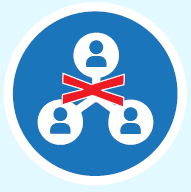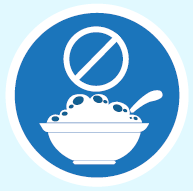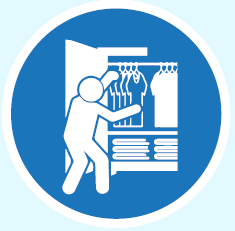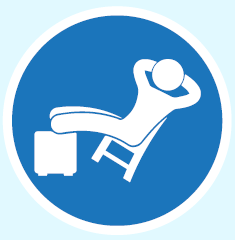DOES ULCERATIVE COLITIS AFFECT MENTAL WELL-BEING?
Ulcerative colitis (UC) may take a toll on a patient's mental health. A flare-up is stressful and can leave a person disturbed for a while. Even in remission, one might get tired or have a tough time meeting friends or going to work. Hence, it is important to understand why living with UC can affect a person's mental health.
There's no proof that stress essentially causes inflammatory bowel disease (IBD), including UC, but stress can trigger flare-ups. And it's common to feel anxious and depressed. The possibility of being depressed is even higher for a woman. Nonetheless, there are ways to lift the mood, even when the symptoms are mentally and emotionally disturbing. These help in coping well with the disease.
HOW DOES ULCERATIVE COLITIS AFFECT MENTAL WELL-BEING?
It's hard on the body and mind if a person is ill for a long time. Mood issues, particularly depression, appear to increase the frequency of flare-ups in some individuals. Sticking to the treatment can become tougher if one feels anxious or depressed. And frequency or possibility of having diarrhoea or stomach cramps might increase if medicines are not taken properly. Stress causes the body to release some chemicals that trigger swelling, which might increase depression and anxiety. One reason may be that swelling due to UC can disturb serotonin levels, a chemical messenger made in the intestines involved in the mood balance.
The amount and type of good gut bacteria or germs that live in the intestine can change during periods of stress. Gut bacteria can affect one’s emotions, immune system, and pain intensity. Also, the corticosteroids that one might take for UC may alter the mood.
SYMPTOMS OF DEPRESSION AND ANXIETY
Symptoms of anxiety include:

Sleep problems

Lack of concentration

Fearfulness

Increase in heart rate

Sweating
Symptoms of depression include:

Feeling hopeless about life

Feeling empty or guilty

Being angry, teary, or sad all the time

Forgetfulness

No longer interested in social activities or sex

Feeling tired or listless

Little interest in eating

Feeling suicidal
MENTAL HEALTH AND WELLBEING CHECK-LIST
The K10 checklist is a simple measure of your psychological health. It uses a series of questions to rate certain aspects of your wellbeing, with results showing whether negative feelings, thoughts or emotions have affected your daily life.
This test should only take a few minutes to complete. It is important to be as truthful as you can. It is extremely common for anxiety and depression to co-exist with inflammatory disorders, but the good news is there are treatment and support options that can help.
Acknowledgement: “Professor Ronald C Kessler of the Department of Health Care Policy, Harvard Medical School is thanked for the use of research on the K10 funded by US Public Health Service Grants RO1 MH46376, R01 MH52861, RO1 MH49098, and K05 MH00507 and by the John D and Catherine T MacArthur Foundation Network on Successful Midlife Development (Gilbert Brim, Director).”
HOW TO COPE WELL WITH ULCERATIVE COLITIS?
If a person has been identified with UC, he/she is probably aware of its uncomfortable physical symptoms that include cramps, pain and fatigue. But one might not expect that it can take a toll on their mental well-being. A person might be grappling with hefty emotions, from high stress to devastating depression, which can
worsen physical pain. There are coping strategies for the psychological effects of UC to feel better with the
body and mind gradually.

Plan small and special things to look forward to
Plan something small like watching web series, having breakfast, talking to a friend, going for a long walk or taking a short calming nap during lunch break.

Prepare for tomorrow
Remove stress as far as possible by arranging clothes or packing dry snacks for the next day

Take some time out to rest
It is easier to get going if one takes short breaks throughout the day

Give some extra time to self before starting the day
Reading, listening to music or just having a cup of tea may make it easier to start the day.

Connect with other people who have UC and join online support groups
Interacting with other patients of UC helps one realize that one is not alone in this condition. Knowing more about how others are coping with UC can help one gain useful tips for self-management

Cultivate and pursue hobbies
It helps one connect with the things or activities they enjoy
If one is still having trouble coping with UC even after several weeks of diagnosis, he/she might need professional help to treat mental health.




